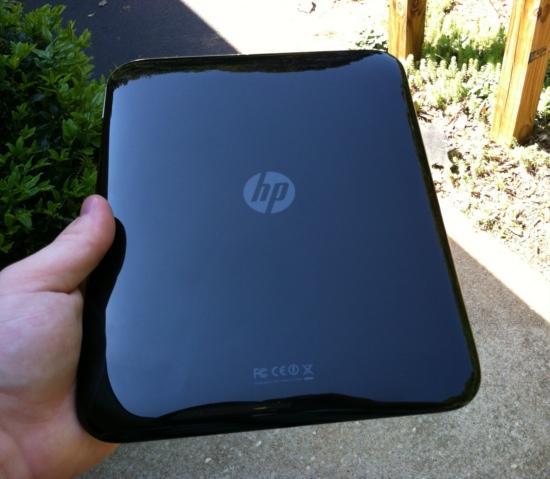
Since announcing their plans to quit the mobile hardware business, HP has found themselves frequenting the headlines. They slashed the prices of their remaining webOS devices and have hinted at plans of licensing the software in the not too distant future. Just under two weeks later, we're hearing that they may bring the tablet back as it is a part of a “segment of the market that's relevant.” (Keep in mind that this was only a conjecture from a vague statement from the HP Personal Systems Group head, Todd Bradley.)
Maybe I'm looking at this from the wrong angle, but things just don't seem to add up. Or maybe they're adding up too perfectly to be coincidental. Is there more to this story than HP is letting on?
After cutting the price of their tablets from (the already reduced) $399 for the 16GB and $499 for the 32GB to $99 and $149, respectively, demand for the TouchPad naturally went through the roof. The webOS tablets sold out online in a matter of minutes and just as quickly over the weekend in retail stores. Some online stores oversold their stock and experienced a rather degrading backlash from angry, TouchPad-crazed customers. Forums, Facebook pages and even our comments section turned into designated war zones. In a way, it was like an online rendition of "Jingle All The Way," except without the Schwarzenegger and that cheesy comic book hero, Turbo Man. (Oh, how I miss the 90s.)
Although Mark Budgell from HP's blog says they were “pleasantly surprised” by the “number of inquiries about the product,” I'm beginning to believe this is what they wanted all along. Mass hysteria. I find it hard to believe that HP didn't expect a mad rush when they dropped the price of their tablets to $99 and $149. The specs were there all along – they challenge those of most high-end Android tablets and the iPad 2. (And boy do those speakers thump!) But at the original price, it made much more sense to buy a tablet with more widely-supported software and a half-decent selection of apps. Not to mention the device itself is rather chunky and heavy. But all of that becomes negligible when the thing only costs $99.
No. HP knew this would happen. It had to be part of an evil plot and everything is falling perfectly into place.
Apple's iPad launched back in April of 2010. Ever since, they have completely dominated the tablet market. Despite the attempts from their counterparts, which have often come at a more wallet-friendly price, the iPad still controls the tablet market share by a rather large margin and is expected to do so for the next nine years. (Yeah … right.)
But now, webOS is on the map. Those who wouldn't have normally bought a tablet quickly snagged one to call their own. Whether they were buying it because they just wanted one but couldn't justify the large price tag from before or simply to load Android on it doesn't matter. Buyers, who never would have given webOS a chance in the first place, have now spent some much-needed hands-on time with HP's software. I'm sure that's well worth it to HP, despite the mountains of money they've lost on the deal. They have successfully immersed the market by selling their products at drastically reduced prices, and by doing so they've earned both mind share and market share – two things they've struggled with in the past.
Now HP is going to continue manufacturing the tablets, at least until the end of their fourth fiscal quarter 2011, possibly longer. And wanting buyers are squatting on their site, hitting F5 every few seconds, hoping the tablet will open for sale again. It's shady, dirty and sleazy. But it has worked.
To be honest, this is something that crossed my mind just hours after I read HP's big announcement. But I wrote it off as another one of my crackpot theories. However, as more information unfolds and HP's future plans change with the wind, the more I begin to believe they did have alternate intentions. What say you? Am I losing it? Or do you think this was HP's plan all along, too? How will other manufacturers react to this? (I'm sure they've already lawyered up.)